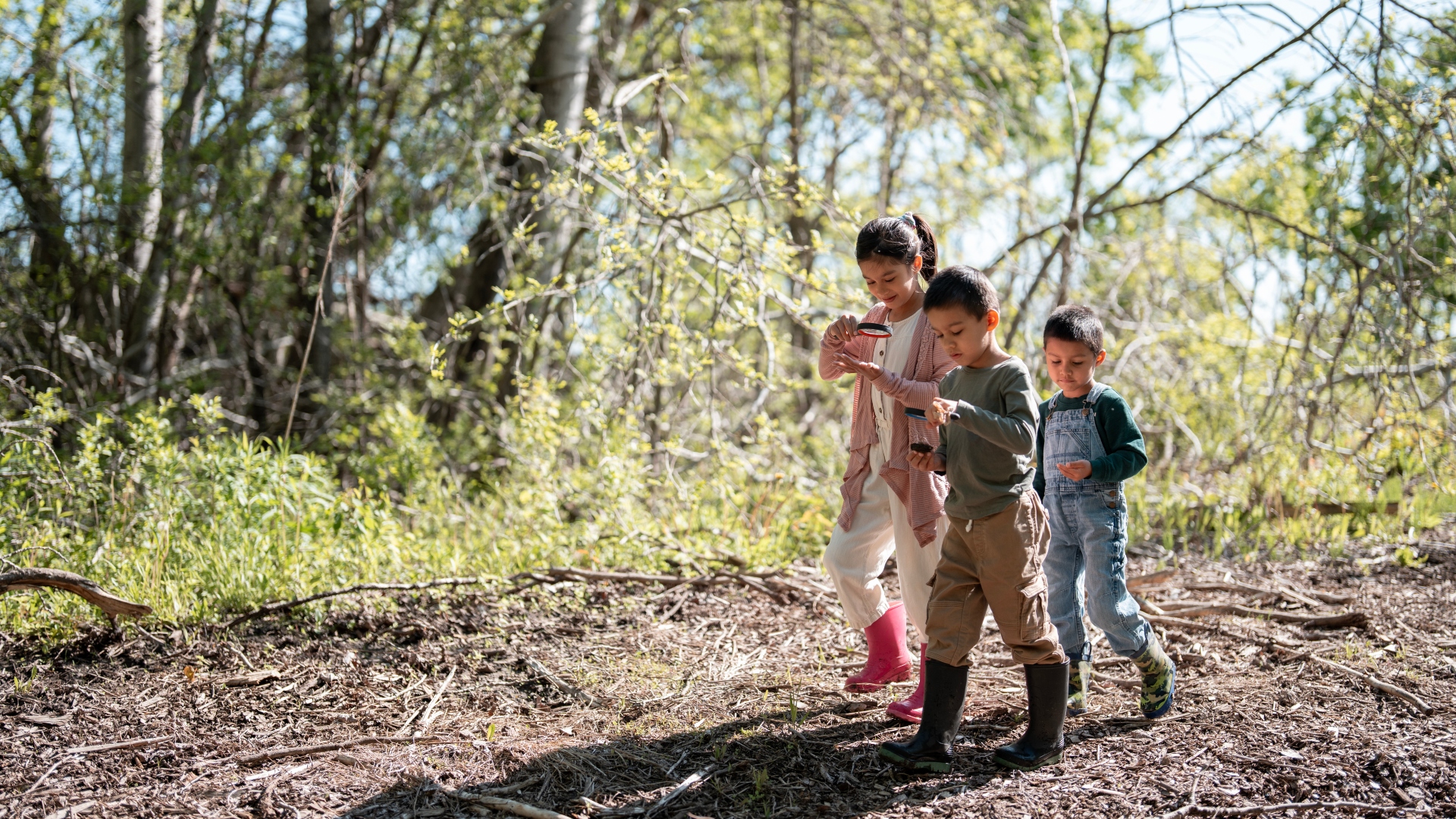
Growing up in a Northeast Philly rowhome in the ’90s during summer meant waking up at 8 a.m., shoving cereal down my throat, throwing on some shorts, and running out the door by 8:42 a.m. I came home to eat lunch and maybe to use the bathroom but went back out until it was dinnertime. I stuck to my mom’s rules: Stay on the block, don’t go any further unless I let her know, and don’t walk on anyone’s lawn. Otherwise, I was largely left to my own devices.
I did playdates without my parents really knowing the other parents, stayed home alone when my mom ran to the store, and more. But that’s just not the norm nowadays, and some families are suffering because of it.
Hannah Bright, an Indiana mom and stepmom, is living proof the latter happens pretty commonly. In fact, her husband’s ex-wife called child services on her three separate times … all over activities that posed no actual danger, according to Reason.
The Department of Child Services said the ex claimed Bright’s children and stepchildren, 10, 9, 7, and 7 years old, were left home unsupervised and in that time the 9-year-old “exposed ” herself to the other kids, they were roughhousing, and sexual abuse occurred by an “unknown” perpetrator.
Although Bright admits they did leave them home for a bit while they got dinner, the “exposing” the child did was “mooning” their siblings, and there was no evidence of sexual abuse. DCS determined that even though the kids were left alone for short periods, “it is not excessive or inappropriate for their age/developmental levels.”
Another time, the kids were riding bikes and were stopped by an officer, who asked if they knew where they lived and if parents knew where they were. When they replied yes, the officer let them go on their way, but when the ex heard they were stopped by the police, she called DCS to say the police were now involved. DCS asked to interview the kids both times, but as a court appointed special advocate, Bright knew her rights and declined both times.
“We’ve been very clear,” Bright claimed she told the caseworker, per Reason. “This was malicious. We are not a family in need of services. You have plenty of families who are. As a volunteer with the courts, I know what you see and deal with — you are wasting your time.”
After the calls, Bright reached out to the founder of Let Grow, an organization that seeks to provide children more independence, to inquire about the Reasonable Childhood Independence Law. The law clarifies that “neglect” references a parent putting their child in serious danger, not just taking their eyes off their kids, and aims to help parents give their kids “freedom” without fear of persecution from the law.
Representatives are taking Bright’s bid seriously. On social media recently, Indiana State Rep. Jake Teshka stated he would be introducing the bill during the next session.
As a mom to a 7-year-old in 2025, there’s an expectation of having a laser-like focus on him and all his doings, and truthfully I couldn’t imagine letting him go over someone’s house if I hadn’t met their parents. The C.S. Mott Children’s Hospital National Poll on Children’s Health analyzed childhood independence and states that kids 5 to 8 years old, in general, aren’t engaging in regular independent activities such as talking to the doctor, deciding how to spend allowances, talking to waiters or waitresses, or even preparing their own snack. It’s all on us as parents.
I’ll be introducing a bill in the next session to ensure that Hoosier parents can give their kids the same type of reasonable independence that I grew up with. The data are clear. This is imperative for our kids’ mental health and the future of our nation. #LetGrow https://t.co/Ssvci1wKZg
— Jake Teshka (@jaketeshka) November 14, 2025
Among kids ages 9 to 11, parents reported there wasn’t a lot they did on their own unsupervised either, stating they often won’t leave them in the car unattended, allow them to bike to a friend’s house, or even go find an item in the store. The reason why? Fear. Roughly 54% of parents worry about someone harassing or kidnapping their child, and others fear other parents reporting them to authorities for allowing them to do any of these things. Unfortunately, research is showing this has a negative impact on our children.
“Several studies showed children who structured their own activities independently have higher social abilities, have greater ability to control their emotions, and greater problem-solving ability; others showed that young adults who were more closely managed by their parents while growing up have more psychological problems in college and are faring worse by a number of different measures,” per Harvard Public Health.
Let Grow’s legal consultant Diane Redleaf stated, “A tighter neglect law will send a message to parents that they are on solid ground when they let their kids have some ‘alone’ time.” She added it will also “help agencies prioritize their precious resources for the kids who truly need state intervention to protect them.”




